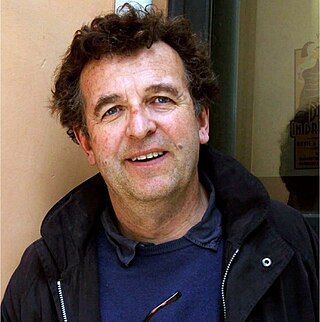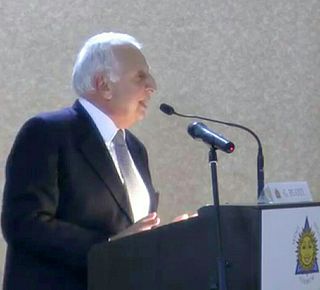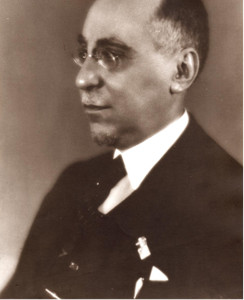Related Research Articles

Comparative law is the study of differences and similarities between the law of different countries. More specifically, it involves the study of the different legal "systems" in existence in the world, including the common law, the civil law, socialist law, Canon law, Jewish Law, Islamic law, Hindu law, and Chinese law. It includes the description and analysis of foreign legal systems, even where no explicit comparison is undertaken. The importance of comparative law has increased enormously in the present age of internationalism, economic globalization, and democratization.
Product liability is the area of law in which manufacturers, distributors, suppliers, retailers, and others who make products available to the public are held responsible for the injuries those products cause. Although the word "product" has broad connotations, product liability as an area of law is traditionally limited to products in the form of tangible personal property.
A tort is a civil wrong that causes a claimant to suffer loss or harm, resulting in legal liability for the person who commits the tortious act. Tort law can be contrasted with criminal law, which deals with criminal wrongs that are punishable by the state. While criminal law aims to punish individuals who commit crimes, tort law aims to compensate individuals who suffer harm as a result of the actions of others. Some wrongful acts, such as assault and battery, can result in both a civil lawsuit and a criminal prosecution in countries where the civil and criminal legal systems are separate. Tort law may also be contrasted with contract law, which provides civil remedies after breach of a duty that arises from a contract. Obligations in both tort and criminal law are more fundamental and are imposed regardless of whether the parties have a contract.
Private law is that part of a civil law legal system which is part of the jus commune that involves relationships between individuals, such as the law of contracts and torts, and the law of obligations. It is to be distinguished from public law, which deals with relationships between both natural and artificial persons and the state, including regulatory statutes, penal law and other law that affects the public order. In general terms, private law involves interactions between private individuals, whereas public law involves interrelations between the state and the general population.

Matthias Edward Storme is a Belgian lawyer, academic and conservative philosopher.
Rudolf Berthold Schlesinger was a German American legal scholar known for his contributions to the study of comparative law, a discipline that examines the differences and similarities among the legal systems of nations.

Ugo Mattei is the Alfred and Hanna Fromm Professor of International and Comparative Law at the University of California, Hastings College of the Law, in San Francisco, California, and a full professor of civil law in the University of Turin, Italy. He is the academic coordinator of the International University College of Turin, Italy, a school where issues of law and finance in global capitalism are critically approached. He is also a columnist for the Italian newspapers Il Manifesto and Il Fatto Quotidiano. For his ground-breaking studies on the commons, in 2017 Mattei won the Elinor Ostrom Award for the Collective Governance of the Commons.
Alain Supiot FBA is a French legal scholar.
The European civil code (ECC) is a proposed harmonisation of private law across the European Union.
Economic loss is a term of art which refers to financial loss and damage suffered by a person which is seen only on a balance sheet and not as physical injury to person or property. There is a fundamental distinction between pure economic loss and consequential economic loss, as pure economic loss occurs independent of any physical damage to the person or property of the victim. It has also been suggested that this tort should be called "commercial loss" as injuries to person or property can be regarded as "economic".

Sabino Cassese is an Italian jurist, former minister for the public function in the Ciampi government (1993–1994), and judge of the Constitutional Court of Italy (2005–2014).
The Columbia Journal of European Law was established in 1994 and is one of the few legal publications in the United States devoted exclusively to European law. It currently ranks among the top five foreign and civil law journals in the US and is the most cited journal of European legal scholarship worldwide. The journal is published under the auspices of the European Legal Studies Center at Columbia Law School. Columbia students are entirely responsible for CJEL’s publication. Close collaboration is kept with the Catholic University of Leuven, Belgium, which keeps the journal abreast of recent developments in the case law of the European Court of Justice. CJEL publishes three issues per year—Winter, Spring, and Summer—and contains articles exploring every dimension of European law in its broadest sense. This includes the law of the European Union and law at the national or regional levels, as well as jurisprudential questions relevant to the development of law and legal institutions in Europe. Its articles cover a range of issues and are authored by leading academics and practitioners. Many articles are comparative in nature and directly relevant to the United States.
The American Journal of Comparative Law (AJCL) is a quarterly, peer-reviewed law journal devoted to comparative and transnational legal studies—including, among other subjects, comparative law, comparative and transnational legal history and theory, private international law and conflict of laws, and the study of legal systems, cultures, and traditions other than those of the United States. In its long and rich history, the AJCL has published articles authored by scholars representing all continents, regions, and legal cultures of the world. It is published by Oxford University Press on behalf of the American Society of Comparative Law. As of 2014, it is co-hosted and administered by the Institute of Comparative Law and the Georgetown University Law Center. It has been hosted in the past by institutions such as University of California, Berkeley School of Law, Columbia Law School, and the University of Michigan Law School. The current Editors-in-Chief are Georgetown University Law Center’s Franz Werro, and McGill University's Helge Dedek.

Wolfgang Fikentscher was a German jurist, legal anthropologist, and academic.

Giovanni Puoti is an Italian Rector, politician, and Professor of Tax law.

The law of Italy is the system of law across the Italian Republic. The Italian legal system has a plurality of sources of production. These are arranged in a hierarchical scale, under which the rule of a lower source cannot conflict with the rule of an upper source.
Vernon Palmer (Vernon Valentine Palmer) is an American-born legal scholar, the Thomas Pickles Professor of Law at Tulane University Law School and the co-director of its Eason Weinmann Center of Comparative Law. He is a specialist in civil law and mixed jurisdiction legal studies, with a primary focus on the study of comparative international law.

Volkmar Gessner was a German university professor and a socio-legal scholar.

Ariel Porat is the president of Tel Aviv University (TAU), a full professor and former dean at TAU's Buchmann Faculty of Law. Until his appointment as president, he was a distinguished visiting professor of law at the University of Chicago Law School. He is a member of the Israel Academy of Sciences and Humanities, incumbent of the Alain Poher Chair in Private Law at TAU, and recipient of The EMET Prize for Art, Science and Culture for Legal Research.

Santi Romano was an Italian public lawyer who taught administrative law, constitutional law, ecclesiastical law and international law in several Italian universities. He was President of the Council of State from 1928 to 1944 and Senator of the Kingdom from 1934, and as member of the Lincean Academy.
References
- ↑ A full list of these institutions is available at Mauro Bussani’s webpage at http://www2.units.it/~dircomp/.
- ↑ Ibidem.
- ↑ See Bussani, La colpa soggettiva. Modelli di valutazione della condotta nella responsabilità extracontrattuale, Cedam, 1991; As peculiaridades da noção de culpa: um estudo de direito comparado, Livraria do Advogado, 2000.
- ↑ Palmer-Bussani (eds.), Pure Economic Loss: New Horizons in Comparative Law, Routledge-Cavendish, 2009; Bussani-Palmer (eds.), Pure Economic Loss in Europe, CUP, 2003.
- ↑ La propriété-sûreté. Rapport général, in La propriété, Travaux de l’Association Henri Capitant. Journées Vietnamiennes, Tome LIII/2003, Société de législation comparée, 2006, 303-325.
- ↑ See for instance The Geopolitical Role of a European Contract Code, in K. Boele-Woelki & F.W. Grosheide (eds.), The Future of European Contract Law. Liber Amicorum E.H. Hondius, Kluwer, 2007, 43-59.
- ↑ The first project focused on the study of property law and non-contractual liability of law as they relate to contract law, while the second was centered on the harmonization of European contract law and the Common Frame of Reference.
- ↑ Il diritto dell’Occidente. Geopolitica delle regole globali, Einaudi, 2010; Credit Rating Agencies' Accountability: Short Notes on a Global Issue, Global Jurist, vol. 10, Iss. 1 (Advances), Art. 1 (2010) (an updated version (August 27, 2011) is available on ssrn [link a papers.ssrn.com/1515285)]; Geopolitics of Legal Reforms and the Role of Comparative Law, in M. Bussani and L. Heckendorn Urscheler (eds.), Comparisons in Legal Development. The Impact of Foreign and International Law on National Legal Systems, Schulthess, 2016, 235-248.